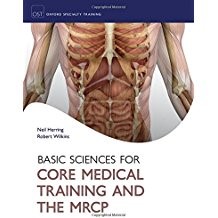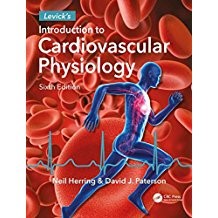Biography
Neil completed his PhD (DPhil) and medical degree at the University of Oxford, before undertaking medical training in Bath, Northampton, London and as a Clinical Lecturer in Oxford. After becoming a Consultant Cardiologist (CCT 2013), he was made an Associate Professor at Oxford in 2015 and was awarded an Intermediate (2015) and then Senior (2021) Clinical Research Fellowship from the British Heart Foundation. Neil was awarded the title of Professor of Cardiovascular Medicine in the 2023 Recognition of Distinction exercise. His clinical work is based at the Oxford Heart Centre of the John Radcliffe Hospital where he sub-specializes in cardiac pacing and rhythm management devices.
Teaching
Neil is the Director of Studies for Preclinical Medicine at Exeter College, and College Lecturer in Medicine at Merton College. Previously he was a Tutor and Fellow (by special election) at Keble College. He lectures and gives tutorials on the first year Physiology and second year Integrative Systems courses for 1st BM, runs the Cardiovascular Science Option for the third year FHS course, and lectures on the third year Principles of Clinical Anatomy course. During the Clinical medical course, he gives lectures in the Laboratory Medicine and Combined Medicine and Surgery courses. He is co-author of the textbooks “Basic Science for Core Medical Training” (highly commended at the BMA Book Awards) and “Levick’s Introduction to Cardiovascular Physiology”, which are both used on the Oxford Medical and Biomedical Sciences courses.
Research
Both the rate and force of contraction of the heart are influenced by the autonomic nervous system, which comprises of two groups of nerves. When the heart has structural or electrical abnormalities, stimulation by the group of nerves that speed up cardiac contraction can lead to dangerous heart rhythms and sudden cardiac death in the short term, and cause heart failure in the long term. However, nerves that slow down cardiac contraction can protect against this. The balance between these two groups of nerves is therefore critical for long term survival in many cardiovascular diseases.
The textbook view of these nerves is that they merely respond to reflexes. However, over the last 20 years my research has found that the system is not “hard wired” and their behaviour can be greatly influenced by local chemical modulators both within neurons (such as nitric oxide), from neighbouring neurons (such as neuropeptide Y and galanin), as well as nearby blood vessels (such as CNP and angiotensin II) and the injured heart itself (BNP). By studying these neuromodulators, we aim to validate their use as potential biomarkers for risk stratification and guiding treatments, as well as develop new therapies for myocardial infarction, heart failure and arrhythmia. Neil was awarded the 2023 Bayliss-Starling prize for his research by the Physiological Society.
Selected Recent Publications
McDowell K, Adamson C, Jackson C, Campbell R, Welsh P, Petrie MC, McMurray JJV, Jhund PS, Herring N (2024) Neuropeptide Y is elevated in heart failure and is an independent predictor of outcomes. Eur J Heart Fail. 26(1): 107-116
Gibbs T, Tapoulal N, Shanmuganathan M, Burrage MK, Borlotti A, Banning AP, Choudhury RP, Neubauer S, Kharbanda RK, Ferreira VM, Channon KM, Herring N (2022) Neuropeptide-Y Levels in ST-Elevation Myocardial Infarction: Relationship with Coronary Microvascular Function, Heart Failure and Mortality. J Am Heart Assoc. 11:e024850
Kalla M, Hao G, Tapoulal N, Tomek J, Liu K, Woodward L, Dall’Armellina E, Banning AP, Choudhury RP, Neubauer S, Kharbanda RK, Channon KM, Ajijola OA, Shivkumar K, Paterson DJ,, Herring N. (2020) The cardiac sympathetic co-transmitter neuropeptide-Y is pro-arrhythmic following ST-elevation myocardial infarction despite beta-blockade European Heart Journal 41(23):2168-79 – see editorial
Ajijola OA, Chatterjee NA, Gonzales MJ, Gornbein J, Liu K, Li D, Paterson DJ, Shivkumar K, Singh JP, Herring N. (2020) Coronary sinus Neuropeptide-Y levels predict adverse outcomes in patients with stable chronic heart failure. JAMA Cardiology 5(3):318-325 – see editorial
Herring N, Kalla M, Paterson DJ. (2019) The nervous system and cardiac arrhythmia: current concepts and emerging therapies. Nature Reviews Cardiology 16(12):707–726
Herring N, Tapoulal N, Kalla M, Ye X, Borysova L, Lee R, Dall’Armellina E, Stanley C, Ascione R, Lu C, Banning AP, Choudhury RP, Neubauer S, Dora K, Kharbanda RK, Channon KM. (2019) Neuropeptide-Y causes coronary microvascular constriction and is associated with reduced ejection fraction following ST-elevation myocardial infarction. European Heart Journal 40(24):1920-1929. – see editorial


